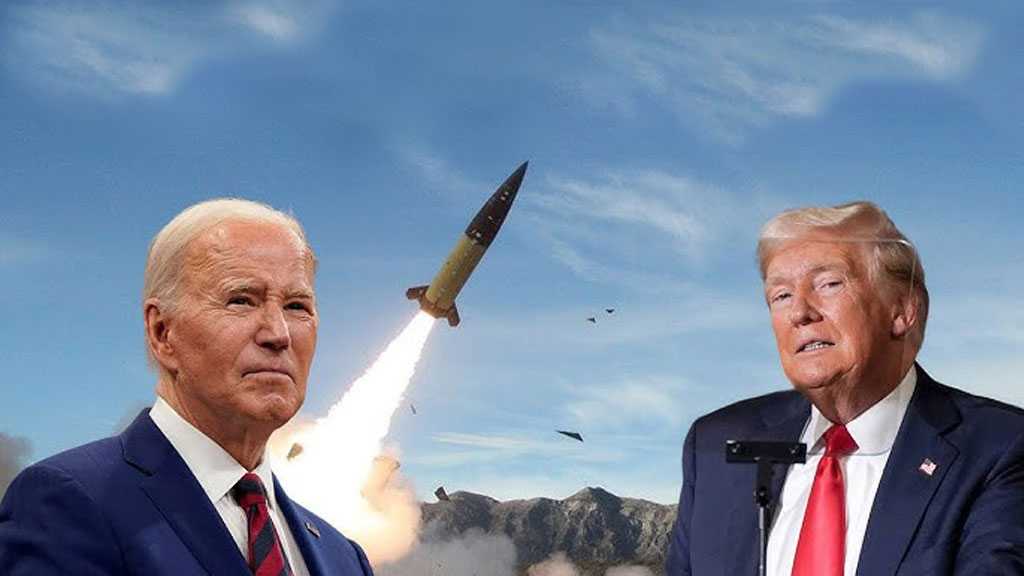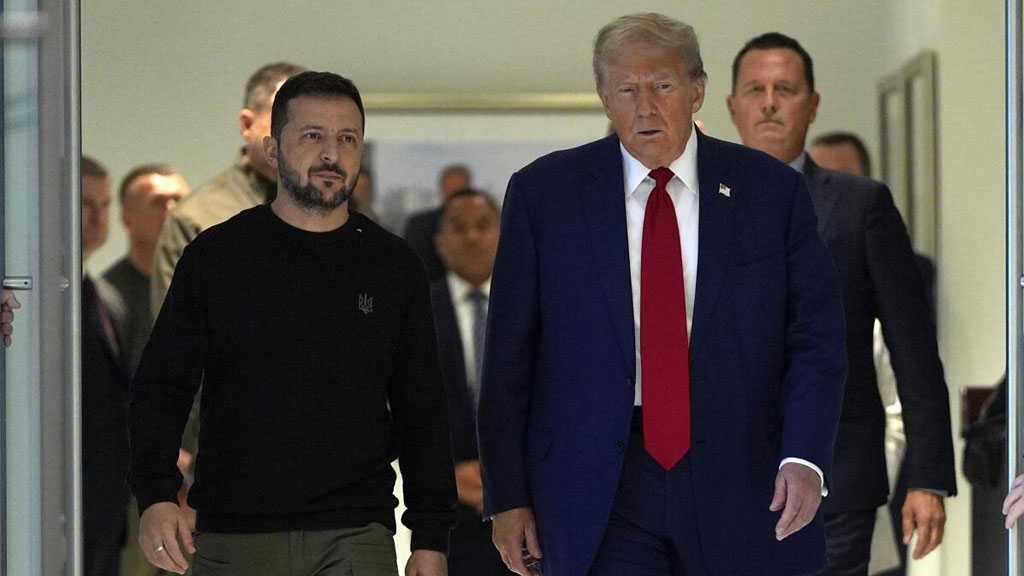Haggling Over US Bailout Plan Rattles Markets

Source: Al-Manar TV, 23-9-2008
World markets slid Tuesday amid mounting concerns over a massive bailout for the US financial system, as haggling over the fine print sparked investor impatience and a spike in oil and gold.
With US Treasury Secretary Henry Paulson due to testify before the Senate banking committee, global markets were impatient for quick results to throw a government lifeline to struggling financial institutions.
The uncertainty -- with wrangling intensified by political considerations ahead of the November 4 US presidential elections -- saw stocks fall in Asia and Europe, taking their cue from a tumble overnight on Wall Street.
The financial crisis was also firmly on the agenda of world leaders at the UN General Assembly in New York, with a spokesman for US President George W. Bush saying he would talk about the rescue plan and its global impact.
Merrill Lynch's Chief North American Economist David Rosenberg said the US package would only provide some relief from the turmoil, and likened its cost to the public purse as "akin to fighting another Iraq war."
"We do not think it seriously changes the endgame -- the US economy is in recession and likely to remain so," he said in a research note. "At best (the package) merely removes what was looking like the worst case scenario: the entire collapse of the global financial system and a deep global depression."
Hong Kong shares fell 3.9 percent, Australian prices 1.9 percent and China's benchmark index 1.56 percent, while Japan's markets were closed for a public holiday.
European bourses fell slightly on opening, with London's FTSE 100 down 0.08 percent, Frankfurt's DAX 30 shedding 0.26 percent and the CAC 40 in Paris down 0.62 percent.
Global markets were already punch-drunk from months of chronic uncertainty following the US subprime mortgage crisis when they were sent diving last week by the collapse of US investment bank Lehman Brothers and a government rescue of insurance giant AIG.
While all seem agreed on the urgency for a rescue plan, some lawmakers are seeking to extract the maximum in return for an agreement that would allow the government to take on bad debts.
There are also concerns over the unprecedented power it would give the US government in the financial markets, and whether it would find itself saddled with a gigantic debt.
"Failure to act would have broad consequences," Bush cautioned, but Senate Majority Leader Harry Reid, a Democrat, signalled he would not be bullied into a quick agreement.
"The Bush administration has called on Congress to rubber-stamp its bailout legislation without serious debate or efforts to improve it," he said. "That will not happen."
Major central banks had agreed last week to inject hundreds of billions of dollars into the system to ensure stability.
While the US bailout plan removes the risk of a financial meltdown, "the solution does little to prevent further economic deterioration over the year ahead."
The Dow Jones Industrial Average plunged 3.27 percent Monday to 11,015.69, giving back its gains from Friday's rally, while the Nasdaq composite slumped 4.17 percent and the Standard & Poor's 500 index shed 3.82 percent.
New York Stock Exchange traders at work amid the financial turmoil gripping global markets
The benchmark New York crude futures contract shot up more than 16 dollars overnight in its biggest one-day gain, although still well below its record of 147 dollars in early July.
New York's main contract light sweet crude for November delivery then fell in afternoon trade in Asia, down 27 cents to 109.10 dollars, while Brent North Sea crude was 15 cents lower at 105.89 dollars.
Gold too shot up, opening Tuesday in Hong Kong, closing at 892.00-893.00 US dollars an ounce, 15 dollars higher than Monday's close.
World markets slid Tuesday amid mounting concerns over a massive bailout for the US financial system, as haggling over the fine print sparked investor impatience and a spike in oil and gold.
With US Treasury Secretary Henry Paulson due to testify before the Senate banking committee, global markets were impatient for quick results to throw a government lifeline to struggling financial institutions.
The uncertainty -- with wrangling intensified by political considerations ahead of the November 4 US presidential elections -- saw stocks fall in Asia and Europe, taking their cue from a tumble overnight on Wall Street.
The financial crisis was also firmly on the agenda of world leaders at the UN General Assembly in New York, with a spokesman for US President George W. Bush saying he would talk about the rescue plan and its global impact.
Merrill Lynch's Chief North American Economist David Rosenberg said the US package would only provide some relief from the turmoil, and likened its cost to the public purse as "akin to fighting another Iraq war."
"We do not think it seriously changes the endgame -- the US economy is in recession and likely to remain so," he said in a research note. "At best (the package) merely removes what was looking like the worst case scenario: the entire collapse of the global financial system and a deep global depression."
Hong Kong shares fell 3.9 percent, Australian prices 1.9 percent and China's benchmark index 1.56 percent, while Japan's markets were closed for a public holiday.
European bourses fell slightly on opening, with London's FTSE 100 down 0.08 percent, Frankfurt's DAX 30 shedding 0.26 percent and the CAC 40 in Paris down 0.62 percent.
Global markets were already punch-drunk from months of chronic uncertainty following the US subprime mortgage crisis when they were sent diving last week by the collapse of US investment bank Lehman Brothers and a government rescue of insurance giant AIG.
While all seem agreed on the urgency for a rescue plan, some lawmakers are seeking to extract the maximum in return for an agreement that would allow the government to take on bad debts.
There are also concerns over the unprecedented power it would give the US government in the financial markets, and whether it would find itself saddled with a gigantic debt.
"Failure to act would have broad consequences," Bush cautioned, but Senate Majority Leader Harry Reid, a Democrat, signalled he would not be bullied into a quick agreement.
"The Bush administration has called on Congress to rubber-stamp its bailout legislation without serious debate or efforts to improve it," he said. "That will not happen."
Major central banks had agreed last week to inject hundreds of billions of dollars into the system to ensure stability.
While the US bailout plan removes the risk of a financial meltdown, "the solution does little to prevent further economic deterioration over the year ahead."
The Dow Jones Industrial Average plunged 3.27 percent Monday to 11,015.69, giving back its gains from Friday's rally, while the Nasdaq composite slumped 4.17 percent and the Standard & Poor's 500 index shed 3.82 percent.
New York Stock Exchange traders at work amid the financial turmoil gripping global markets
The benchmark New York crude futures contract shot up more than 16 dollars overnight in its biggest one-day gain, although still well below its record of 147 dollars in early July.
New York's main contract light sweet crude for November delivery then fell in afternoon trade in Asia, down 27 cents to 109.10 dollars, while Brent North Sea crude was 15 cents lower at 105.89 dollars.
Gold too shot up, opening Tuesday in Hong Kong, closing at 892.00-893.00 US dollars an ounce, 15 dollars higher than Monday's close.




